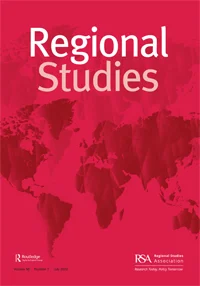Regional Studies – Published online: 24 Nov 2022
Growth in the craft beer sector has been unevenly distributed over time and in terms of geographical area. While the spatial drivers of craft breweries in the United States are well documented, research on the situation in European countries is still limited. This paper investigates the locational determinants of the Hungarian craft brewing industry between 2005 and 2018 at the level of small regions. We employ negative binominal models to determine the relationship between the number of microbreweries and locational factors. We find that demand-side factors, including income, level of education, proportion of youth in a region and population density, positively affect the number of craft breweries. We emphasize that general local economic characteristics may be less important, whilst industry-specific local conditions (e.g., craft brewing traditions and market saturation) significantly impact the location choice of craft breweries. Our estimations highlight the role of transport costs in location decisions. Finally, we demonstrate the relevance of the availability of water, one of most important inputs in beer production.
Keywords: craft beer, location determinants, negative binominal models
JEL: C24, L22, L66, R12



